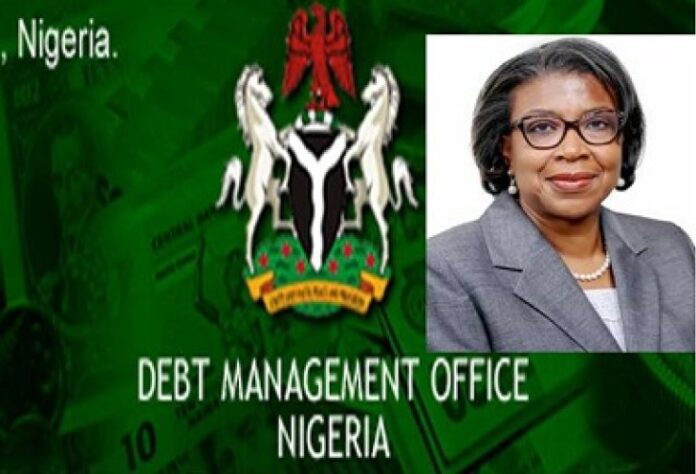Debt Management Office (DMO) and African Centre for Leadership, Strategy and Development (Centre LSD) have tasked the incoming government on revenue generation to tackle Nigeria’s debt deficit.
The stakeholders made the call on Wednesday, in Abuja at a one-Day Leadership and Development Policy Dialogue Series (LDPDS) with the theme “Nigerian Debt Sustainability Threat: Issues, implications, Lessons and Solutions for the Next Administration”
Director, Portfolio Management Department of the DMO, Mr Dele Afolabi, said that Nigeria had to be deliberate with revenue generation to harness a balanced economy because currently, the revenue did not match the high debt servicing burden of the country.
According to Afolabi, this is imperative since revenue pays debt because the more revenue you have ,the less you have to borrow going forward .
He said although Nigeria had the highest Gross Domestic Product(GDP) in Africa but its government generated revenue to GDP ratio is lower than that of most African countries and this can be tackled through taxes among others.
“The people are not paying the right taxes ,we don’t have the right culture of taxation and revenue for government. So, I think ,looking at the next government ,the key focus should be on how to grow government revenue.
“Most people really don’t pay taxes ,apart from people that receive salaries in the formal sector a lot of people are either not paying tax at all or not paying as they should ;so there a lot of leakages in terms of government revenue.
“If we have the highest GDP in Africa, then we should also have the highest revenue but that is not the situation.’’
Afolabi, therefore, recommended that government should reduce its over dependence on crude oil and harness other resources and solid minerals and block all leakages and grow revenue to reduce accumulating debt.
He also called for stringent action against tax defaulters adding that in other climes ,evading tax payment was criminal and people go to jail for it.
The Executive Director of Centre LSD, Mr Monday Osasah, said that the dialogue was imperative following the Federal Government outcry that Nigeria’s debt sustainability had become threatened following the recent rise in its revenue shortfalls.
Osasah said that according to the Minister of Finance, Nigeria is expected to spend 60 per cent of its total revenue on debt servicing in 2023 and this portended a grave threat to the economy.
“According to Nigerian Bureau of Statistics (NBS) in its Nigerian domestic and foreign debt Q3 2022.
“Nigeria’s debt stock which includes external and domestic debt rose from N42.84trillion or 103.31 billion dollars in the second quarter of the 2022 to N44.06 trillion or 101.91 billion dollars in the third quarter same year.
“The debt figure comprised the debt stock of the Federal Government, the 36 states and FCT.
“The burgeoning trend of our debt is worrisome especially when it is now being used for debt servicing rather than for growing and developing our infrastructure .’’
Osasah said that Nigeria’s debt service-to-revenue ratio is put at 83 per cent of quarter 3,2022 and the ratio had been on the rise as Nigeria faced a dwindling government revenue while government expenditures have increased.
He said that considering the grim reality, the need for begin to think and commence advocacy for budgetary reforms, fiscal prudence and revenue innovation for the next government was paramount.
He said without these, it would difficult for the incoming administration to rescue the country from the weakening debt sustainability trend.
Prof. Isah Mohammed ,a Professor of Transport and Financial Economics ,Department of Economics ,University of Abuja, a key speaker at the event, said public debt was a crucial tool for government to finance public spending .
Mohammed said that this was, especially when it is challenging to increase taxes and cut spending and the procedure has resulted in government having enormous unpaid debts overtime.
“Another way to accelerate economic growth is contracting reasonable debt to pay for infrastructure and public projects.
“In order to encourage long-term development ,the government should also ensure that borrowing is done on conditions that are consistent with entrenching debt sustainability and that borrowed funds are wisely invested in the economy’s value added sectors.’’
Mohammed said that Nigeria should accomplish this to resolve its debt problems, improve its credit standing and achieve sustainable growth.
He also called for effective tax administration to tackle revenue challenges and the need to ensure compliance to remittances devoid of all form of evasion in the system.




